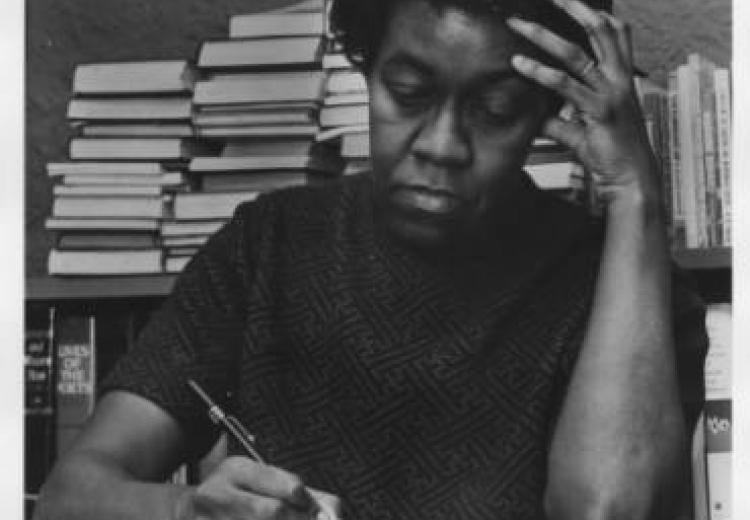Student Activity
Gwendolyn Brooks’ "We Real Cool"

Photo caption
Gwendolyn Brooks
Read Gwendolyn Brooks' poem "We Real Cool" out loud to yourself a few times. Then watch the video of John Ulrich discussing and reading "We Real Cool" as part of the EDSITEment-reviewed Library of Congress Favorite Poems Project. Pay particular attention to how you read the poem and how the poem is read in the Favorite Poems Project video—what words are emphasized? what kind of rhythm is established?
- Where does this poem take place?
- Who makes up the "we" in the poem? How would you describe the "we" and what are they doing throughout the poem (consider their age and attitude)?
- How would you describe the voices, or identities, of the "we"? What three adjectives best describe the pool players?
- Ask the students who read the poem whether it was difficult for them to pause after each "we" (where the line breaks). Why or why not?
- What was different about each student’s and John Ulrich’s reading of the poem?
- What do you think made the poem compelling to John Ulrich based on how he described his life, his neighborhood, and his friends?
- What about the poem stood out as each student was reading the poem?
- What is the mood or tone of the poem?
- How would you describe the sound of the poem - like a song, a chant, or some other sound?
Next, listen to Gwendolyn Brooks talk about and read her own poem. Then read the first two selections from Brooks talking about her own poetry ("An Interview with Brooks by George Stavros" and "Gwendolyn Brooks").
- In her commentary, Brooks mentions "the establishment." What does she mean by "the establishment"?
- How are the pool players going against the establishment?
- What does Brooks mean when she suggests that the soft "we" indicates that the pool players have a "basic uncertainty"? About what are they uncertain?
- How would you describe the "we" now (in relation to when you first heard the poem read by students)? How does the soft "we" help to make the pool players seem uncertain? Are they uncertain about themselves?
- Notice how Brooks pauses after each "we"; what effect do these pauses have on the poem as she reads it? How do the pauses affect the poem’s pace and rhythm?
